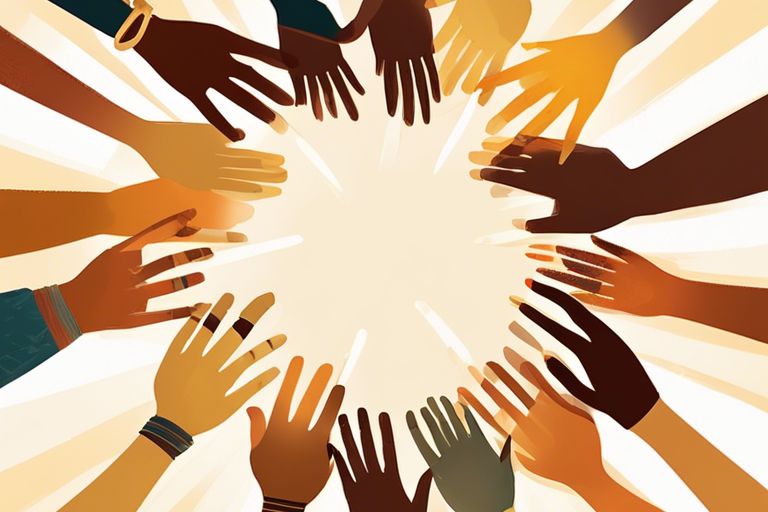Developing empathy is crucial for fostering strong relationships, effective communication, and a sense of connection with others. It involves understanding others’ emotions and perspectives, and it’s an essential skill that can be developed with practice. In this blog post, you will explore effective strategies to strengthen your sense of empathy and understanding towards others, empowering you to build deeper, more meaningful relationships in your personal and professional life.
Foundations of Empathy
To cultivate a strong sense of empathy and understanding towards others, it is essential to understand the foundations of empathy. Empathy is the ability to understand and share the feelings of another. It involves being able to put yourself in someone else’s shoes and see the world from their perspective. Empathy is a crucial skill for building and maintaining healthy relationships, fostering understanding, and promoting compassion.
The Science Behind Empathy
Empathy is rooted in our biological makeup as human beings. Research has shown that empathy is not just a feeling, but it is also a physical and neurological response. When you witness someone experiencing an emotion, your brain can mirror that emotion, allowing you to understand and resonate with their experience. This ability to empathize is what allows you to connect with others on a deeper level and recognize their emotions as if they were your own.
Emotional Intelligence and Its Role in Empathy
Emotional intelligence plays a significant role in cultivating empathy. It involves being aware of your own emotions, understanding how they impact your thoughts and behavior, and being able to recognize and manage the emotions of others. By developing your emotional intelligence, you can better tune into the feelings and needs of those around you, allowing you to respond with compassion and understanding in any given situation.
Developing Empathy through Active Practice
If you want to cultivate a strong sense of empathy and understanding towards others, it’s important to actively practice and develop these qualities. This involves consciously making the effort to put yourself in others’ shoes and truly understand their experiences and emotions. One way to actively practice empathy is by improving your listening skills and empathetic communication. According to PsychCentral, actively engaging in empathetic behaviors and communication can help you become more empathetic.
Listening Skills and Empathetic Communication
Developing strong listening skills is essential in cultivating empathy. When you actively listen to others, you demonstrate that you value their thoughts and emotions. This involves giving your full attention, maintaining eye contact, and avoiding interrupting or judging the person speaking. By practicing active listening, you can truly understand the emotions and experiences of others, which is crucial in building empathy. Additionally, using empathetic communication techniques, such as reflecting back what the other person has said and expressing understanding, can further strengthen your ability to empathize with others.
The Role of Vulnerability in Fostering Empathy
Being vulnerable is an integral part of fostering empathy. By allowing yourself to be vulnerable, you can connect with others on a deeper level and understand their experiences more profoundly. Sharing your own experiences and emotions can create a sense of openness and trust, which in turn encourages others to share their own feelings and experiences. This mutual vulnerability can lead to a deeper understanding and empathy towards one another. Embracing vulnerability allows you to step outside your comfort zone and connect with others in a more meaningful way, ultimately fostering a stronger sense of empathy.
Empathy in Diverse Contexts
Despite the challenges, cultivating a strong sense of empathy and understanding towards others is crucial in various diverse contexts. Whether it’s in your personal relationships, professional interactions, or encounters with people from different cultural backgrounds, empathy plays a vital role in creating meaningful connections and fostering a sense of community. To help you in this journey, here are 5 Tips for Cultivating Empathy that you may find helpful.
Understanding Cultural Differences and Empathy
It’s essential to recognize and respect the cultural differences that exist in the world around you. By acknowledging and understanding these differences, you can develop a greater sense of empathy towards individuals from diverse cultural backgrounds. Take the time to educate yourself about different customs, traditions, and values. This will enable you to approach others with empathy and understanding, rather than making assumptions based on your own cultural perspective.
Empathy in Professional Settings
Empathy is not only important in personal relationships but also in professional settings. Developing empathy in the workplace can improve teamwork, communication, and overall job satisfaction. By putting yourself in the shoes of your colleagues and understanding their perspectives, you can create a more supportive and collaborative work environment. This can lead to increased productivity and a stronger sense of camaraderie among team members.

Strategies for Overcoming Empathy Blockers
Your journey toward developing empathy may be hindered by various blockers that prevent you from truly understanding and connecting with others. These empathy blockers can include personal biases, emotional overwhelm, and more. Overcoming these blockers is crucial in cultivating a strong sense of empathy and understanding.
Recognizing and Addressing Personal Bias
One of the most significant empathy blockers is personal bias. Your own prejudices and preconceived notions can prevent you from truly empathizing with others. It’s important to recognize and address these biases by actively seeking to understand perspectives that differ from your own. You can start by educating yourself about different cultures, beliefs, and experiences. Engaging in open-minded conversations and actively listening to others’ stories can help you challenge and address your personal biases. For more in-depth strategies on how to develop empathy and improve your relationships, you can also check out this insightful article How to Develop Empathy and Improve Your Relationships.
Managing Emotional Overwhelm
Another common empathy blocker is emotional overwhelm. When you feel emotionally drained or distressed, it can be challenging to connect with others and understand their feelings. It’s crucial to manage your own emotions effectively in order to be present for others. Practice self-care routines, such as meditation, exercise, or spending time in nature, to regulate your emotions and reduce overwhelm. Setting boundaries and seeking support from trusted friends or professionals can also help you manage emotional overwhelm and cultivate a greater sense of empathy.
Cultivating Empathy and Understanding Towards Others
Drawing together the various tools and strategies discussed in this article, you can develop a strong sense of empathy and understanding towards others. By actively listening, practicing perspective-taking, and being open-minded, you can start to see the world from others’ point of view. Additionally, engaging in acts of kindness and volunteering can help you develop a deeper connection to the experiences and emotions of others. Remember, empathy is a skill that can be improved with practice, so be patient with yourself as you continue to cultivate a stronger sense of empathy and understanding.



1 Comment
the5fs